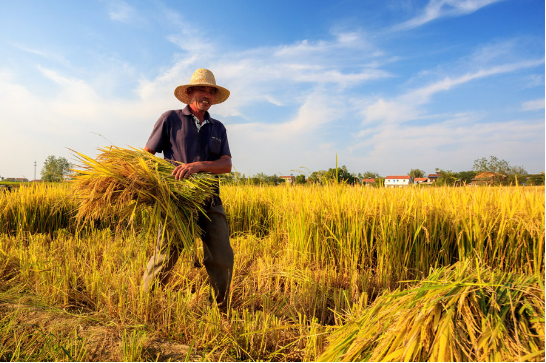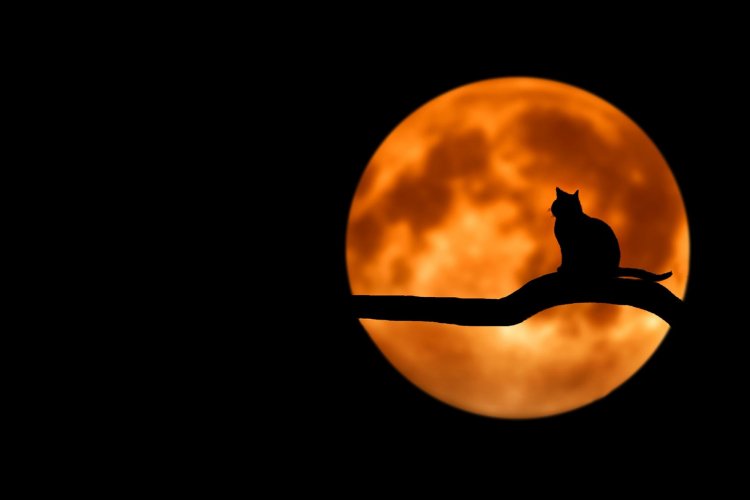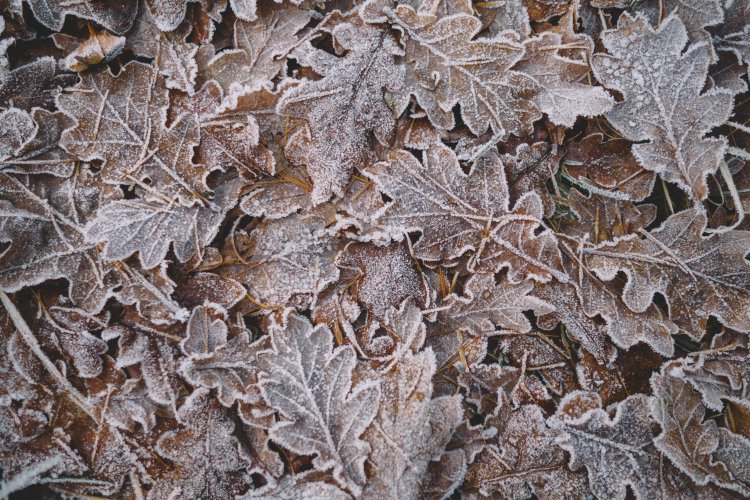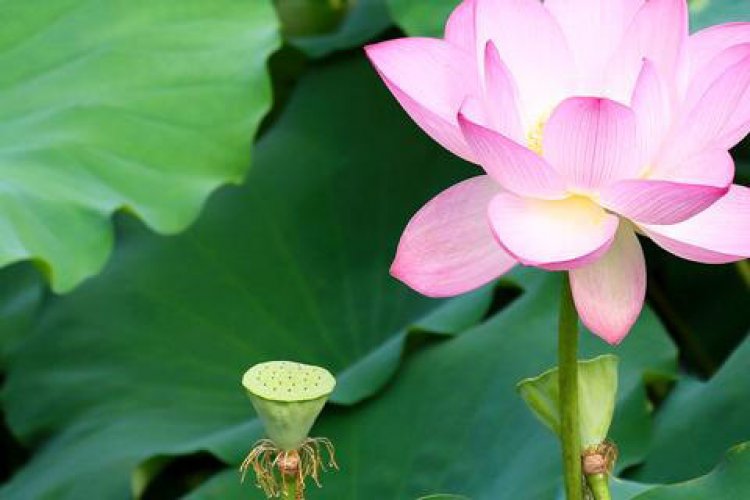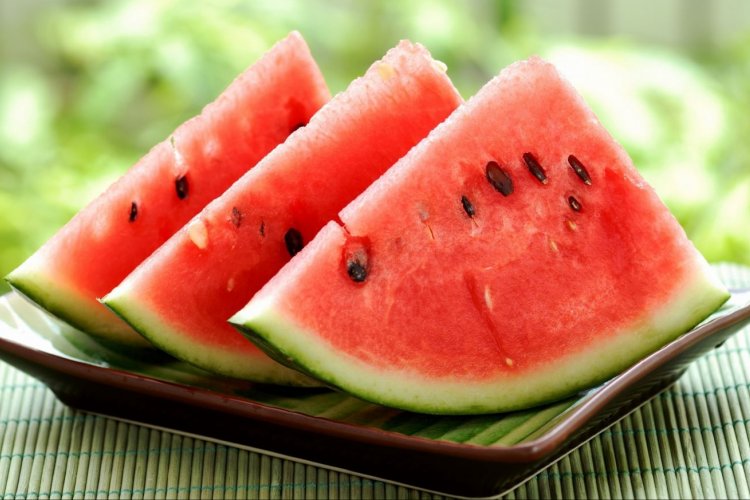Solar Terms 101: Out With the Summer Bod, In With the Autumn Belly
The traditional Chinese lunar calendar divides the year into 24 节气 jiéqì solar terms based on seasonal changes and natural phenomenon. They play an important role in guiding agricultural activities, even to this day. But even city-dwellers like us can enjoy them. Each solar term has its own associated customs, traditions, and even recipes. In Solar Terms 101, we delve into what makes each one special...
Name of the solar term: 立秋 lìqiū lit. "Beginning of Autumn"
Gregorian date: Aug 8 +/- a day (Aug 8, 2023)
What is liqiu all about?

As one of 四时八节 sì shí bā jié the eight solar terms of the four seasons, liqiu is the first of autumn and begins when the sun reaches a longitude of 135 degrees. Technically speaking, this solar term marks the beginning of autumn and the waning of rainfall, storms, and humidity in most parts of China. However, folk sayings such as 热在三伏 rè zài sānfú “the third part of the sauna period is the hottest part” or 秋老虎 qiūlǎohǔ “The tiger of the fall” indicate that the start of autumn according to a calendar isn't necessarily reflective of the temperature or weather. What's more, given that liqiu usually falls within the middle to end of a period of searing heat, the remaining warmth and humidity being released from the ground may still suck the last drop of your energy reserves, with some places including Beijing seeing even more temperature spikes. Nevertheless, the sheer thought of autumn on the horizon is enough to help all of us push through to the end of summer.
The micro seasons of liqiu
The three micro seasons of liqiu depict a vivid image of nature and its various changes as we transition from summer to fall. The first one is 凉风至 liáng fēng zhì “the cooling wind arrives” which tells you that the ubiquitous heatwaves are finally beginning to recede, making way for a refreshing breeze in the morning and evening.
白露降 báilù jiàng “The white dewfall” is the second micro season of liqiu, and marks a drop in temperatures – especially during the dawn – when moisture in the air condenses, leaving dew-covered surfaces all around town. Reflected and refracted by morning sunlight, these droplets were thought to be white during ancient times, hence its name.

In the last micro season, when a change in seasons is still imperceptible to the feeble human sensory system, some animals that are more sensitive to temperature fluctuations – or yin energy in traditional Taoism belief – will start to signal the impending arrival of fall. Among them, the cicada, which is known for its loud and unique chirp, giving this last micro season its name, 寒蝉鸣 hánchán míng “the winter cicada begins to chirp.”
The busier, the merrier
Whereas many solar terms are celebrated with various festivals and gatherings, liqiu is dominated by a frenzied harvest of the year's crops. Nevertheless, there are a few traditions that sneak into the farm work, such as worshipping the god of soil and the ground to show gratitude for the upcoming harvest. Likewise, as villagers are busy harvesting, counting, and storing their bounty, it's common for families to band together, operating as an efficient and well-organized unit to make sure all the crops are safely stowed away before the next rainfall. Once all the hard work is done, various fairs will be held so that farmers can exchange their livestock, tools, and products. And for a bit of light entertainment, jugglers, monkey shows, street-side performances and many other forms of folk art are on display. For farmers who reside in Hunan, Jiangxi, and nearby regions, the remaining sunlight means placing many of their fruits and vegetables on rooftops, given the mountainous landscapes of these provinces. Today, the vibrant colors and stunning views are a favorite subject of professional and amateur photographers alike.
What to eat for liqiu
The fat that is commonly regarded as an annoying and redundant part of our body today was once cherished as a safeguard against tough labor, poor harvests, and various ailments in ancient times. Before the air conditioner was invented, people risked losing their appetite and weight during 苦夏 kǔ xià the bitter summer, therefore, it was crucial for Chinese folks to eat their fill throughout autumn like a bear gearing up for hibernation.
With the last vestiges of heat still lingering in the air, watermelon is a favorite choice for people of all ages, with many of its varieties ripening during this time. Some regions have even bestowed a special name upon eating watermelons around this time, 咬秋 yǎo qiū "bite the autumn."

For those of you who have been following along, you'll remember that back in May, during lìxià, it was customary to weigh yourself. Well, here we go again! During liqiu, you will be weighed again to see how many pounds have been shed during summer. To help put them back on, 红烧肉 hóngshāo ròu red braised pork, 烤鱼 kǎo yú roasted fish, 糖醋里脊 táng cù lǐjí sweet and sour pork, 羊肉串 yángròu chuàn lamb kebab, and all things protein are consumed during this season. It truly is a carnival for carnivores.
And what should you do after devouring all the things with four legs? Nothing! All you need to do is 躺秋 tǎng qiū lay down and maybe take a nap to embolden your autumn belly.
Read: Solar Terms 101: Free Sauna for Everyone, Dashu is Here!
Images: Aian5w, Zhihu, Wikipedia, Qbaobei

